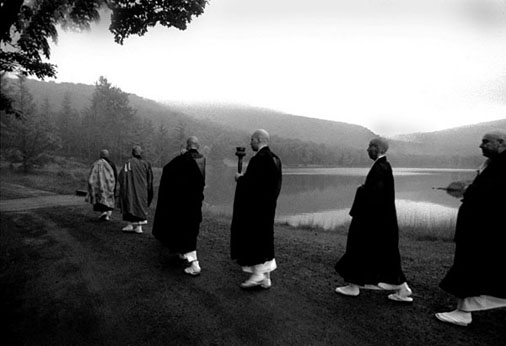Everything Zen #1 - The obstacle is the path
Way back when I wrote about one of my favorite books that I've ever read called Zen Lessons: The Art of Leadership, a collection of Zen stories about leading people, organizations, and personal development. I've carried that little book around with me for ages, and even after all this time still occasionally leaf through the lessons and am usually surprised both by how simple and on-point most of the ancient lessons remain today.
So on a sluggish Wednesday where I'm still shaking off the after-effects of the SHRM Annual Conference, I figured I needed a little inspiration to dive into the Inbox and voice mail, so of course I turned to a little Zen. And then I figured since I dig these Zen sayings and stories so much, (and I need some more 'theme' series around here for these kinds of days), let's call today's post the first in the Everything Zen series, a semi-occasional look at how these lessons can help us to get over on what seem like modern problems, but mostly are pretty much the same ones the ancients wrestled with themselves.
So here goes, Zen Lesson #1 is simple - 'The obstacle is the path'.
The obstacle isn't something standing in the way, it is the way itself.
That's it.
I know, not very profound. But if you think about it a little, and open up to the concept that the barriers that exist between you and where you are going or what you are trying to accomplish aren't distinct from the task or journey itself, that they actually are the task and journey too, then it kind of frees you and empowers you to approach and attack them differently.
They become less daunting, less intimidating, and maybe your attitude towards them can subtly shift from fighting with them, (and getting angry or frustrated or bitter), towards seeing and dealing with them as just another part of the path you're already on.
I know, deep thoughts.
So that's it from me today, time to face the unread messages in the Inbox, (takes a deep cleansing breath).
The obstacle is the path...

 Steve
Steve


